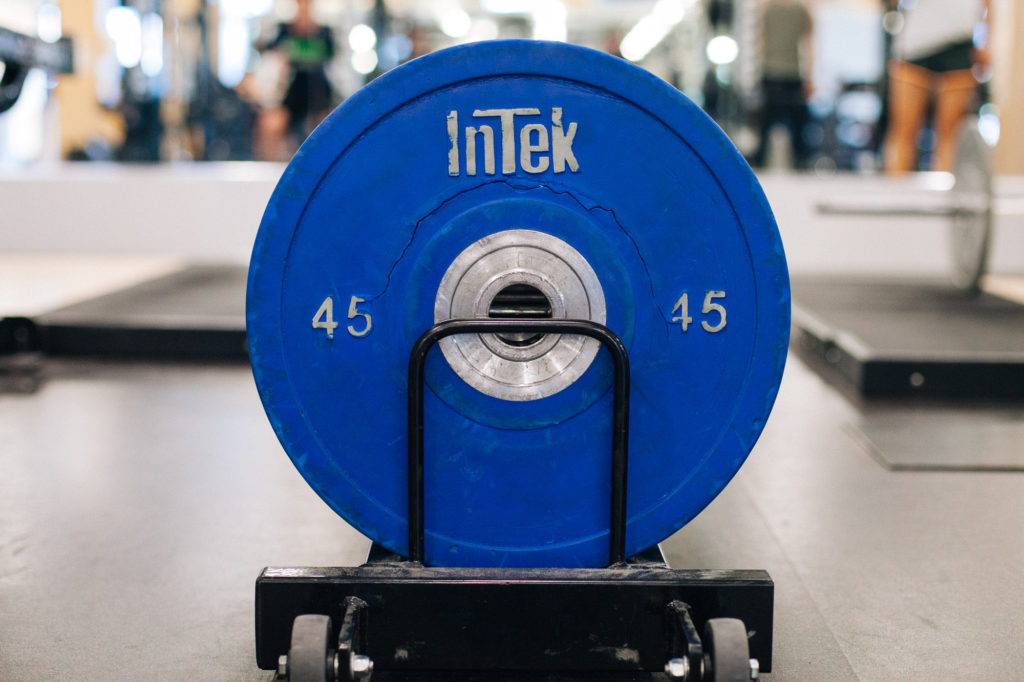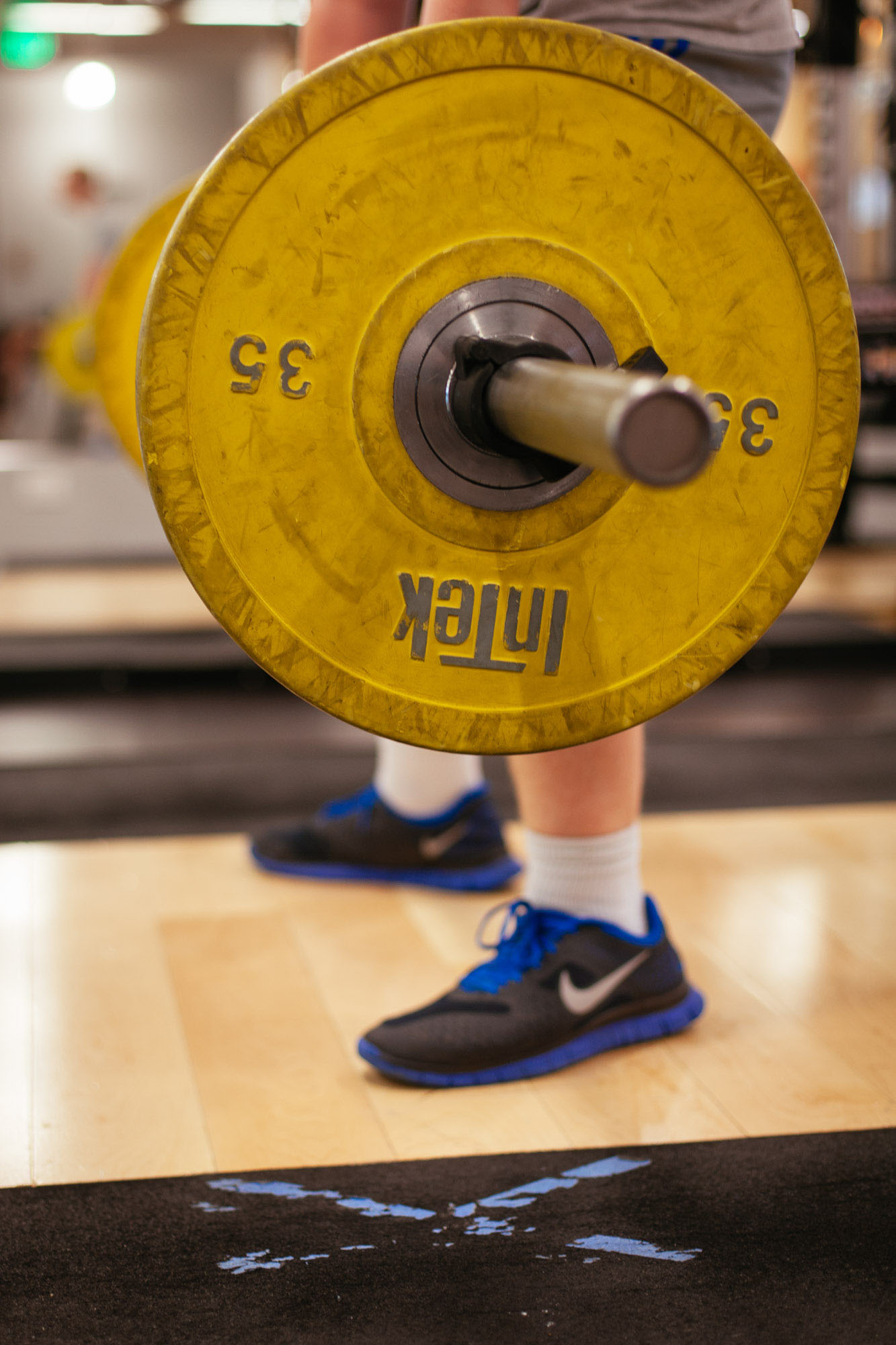For Olympic-style lifters at Seattle University’s Eisiminger Fitness Center, there is now a louder emphasis on being quieter when it comes to heavy lifts.
“From 2011 til about six months ago we were able to lift and drop the weights,” David Chow said, a graduate student in Nonprofit Leadership. As a long time student lifter, Chow was taken aback by the new attitude toward the lifting community. Despite Chow’s regular presence at Eisiminger, the change came without warning.
Andrew Innes has lifted at Eisiminger since 2009, and echoed Chow’s sentiments.
“I’m not aware of any dialogue between UREC staff and gym users prior to the change,” he said. Innes feels the move is not only unfair, but also unprecedented. “In fact, the use of the equipment for Olympic-style weightlifting seemed encouraged.”
Both believe UREC is targeting specific athletes and have an agenda to remove these athletes’ access to the facilities. Chow said he believes the policy change is discriminatory against people of color in particular, and that many of his peers have said they feel isolated by the rule.
Director of UREC Dion Wade explained to Chow that this was not the case. He said recent equipment damage and the platform’s proximity to the entrance were the major concerns.
“I do believe that as the first activity seen when coming into the facility, people with basic, or no knowledge of fitness can be intimidated by the noise and technical skill of full Olympic Lifting,” Wade said. After reviewing similar policies around the country, they made changes with a goal of being more inclusive.
Chow is half Chinese and believes the opposite occurred. He said those from Asia and Pacific Islands were unfairly marginalized by recent changes.
“The lifters I lift with, we’re brown people, and so to be told that the first thing people see is intimidating…I don’t think we should be reinforcing labels that we’re trying to identify and tease apart here at Seattle University.”
UREC denies any motives based on race, and instead points towards growing concerns about the atmosphere around the platforms.
“It’s really about having them do a little modification in the lifts so we can manage our equipment, and just create an environment that’s positive for everybody in the university community,” Wade said.
Both Chow and Innes see it differently, and insist more is at play with the decision.
“There is a certain amount of irony for a facility whose marketing motto is, ‘How Do U Rec?’ to be discouraging users from working out in specific ways,” Innes said.
Wade says this is not the case, insisting his staff had fielded comments about excessive noise and disruptive activity for months before taking action.
“We regularly overheard members complaining about the dropping of the weights and the intimidating environment,” wrote Samantha Griffin, Assistant Director of UREC for Eisiminger. “On one specific occasion a member came in, saw the strength floor, and asked if it was a male facility only.”
Griffin said patrons welcome the new feel; one person even made a point to tell UREC directly how
they felt.
“He said that the atmosphere and the energy in the fitness center has totally changed. He loves coming to the fitness center again,” Griffin said.
Support for the decision has not done much to silence Chow, Innes and others. For them, the lack of dialogue is a concern, and worthy of critical review.
“This is a student development issue,” Chow said. “There was a giant missed opportunity to have a conversation about what this space is, and what it means to different people, and that didn’t happen.”
Vice President of Student Development Michele Murray reiterated UREC’s message about the policy change. She insists the desired outcome only pertains to style, and not the exercise itself.
“Olympic-style power lifting has not been banned from the fitness center,” she wrote in response. “There is a way for power lifters to lower their weights safely without dropping them, and they have been encouraged to do so.”
Despite this emphasis, Chow and Innes feel such perspectives fail to address the concerns of their community, and fall short of providing a student-centered experience.
“The fitness center was a safe space to be ourselves. We never worried about what people thought of us inside that space,” Chow said.
Now, he and Innes feel it’s time to organize.
“I think the best outcome is a dedicated room for those activities,” Innes said. “UREC should be doing everything in their power to encourage people to stay active in whatever way they choose.”
Moving forward, if they decide to approach UREC with alternative solutions, Wade says they’ll be open to discussing a realistic compromise.
“I want to make sure that students feel like they’re heard, and that we have the interest of all students at hand,” Wade said. “I also want everyone to understand that we’re doing all of these little things to provide the space for all students to be included.”
The editor may be reached at news@su-spectator.com










Richard A
May 26, 2016 at 1:22 pm
Solid piece. I agree with most of it. The most critical take-away is just the overall lack of conversation with students, staff, and faculty. They have replaced integral facilities like the Martial Arts room without speaking to anyone. The only matted facility on campus where practicers from all disciplines could feel comfortable expressing themselves. It just points to a lack of knowledge in the overall sphere of fitness and health.